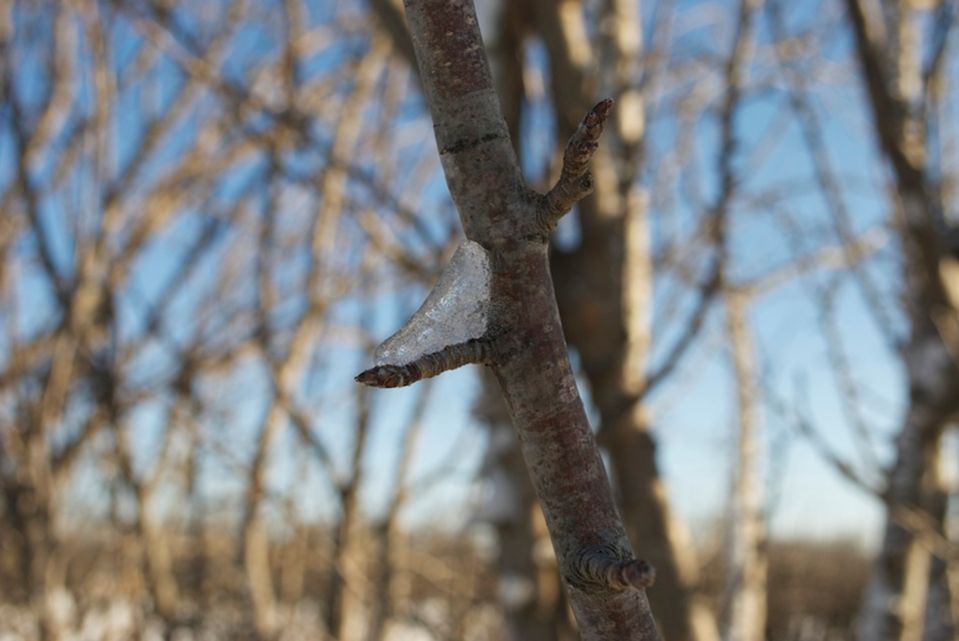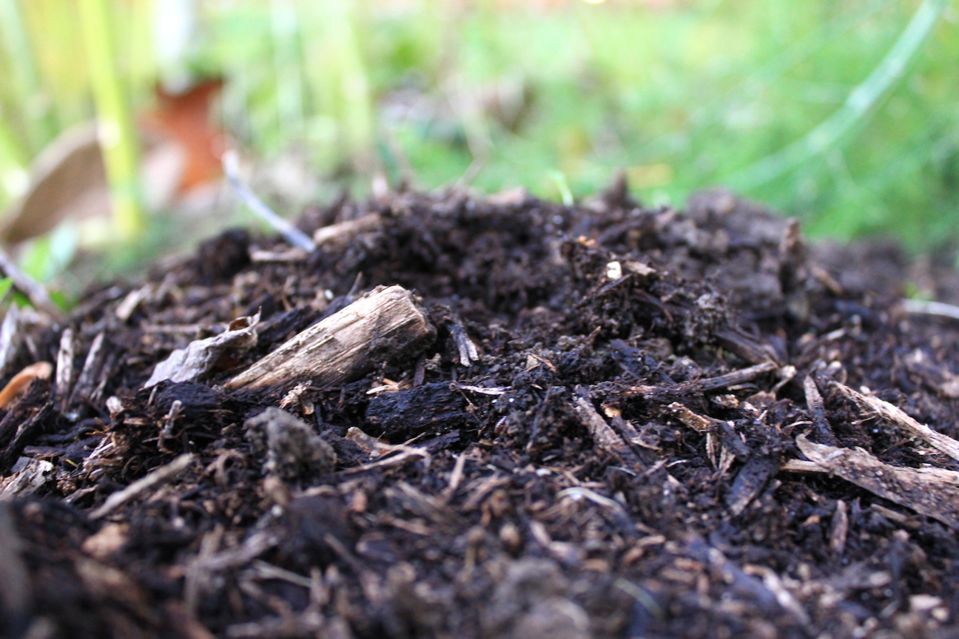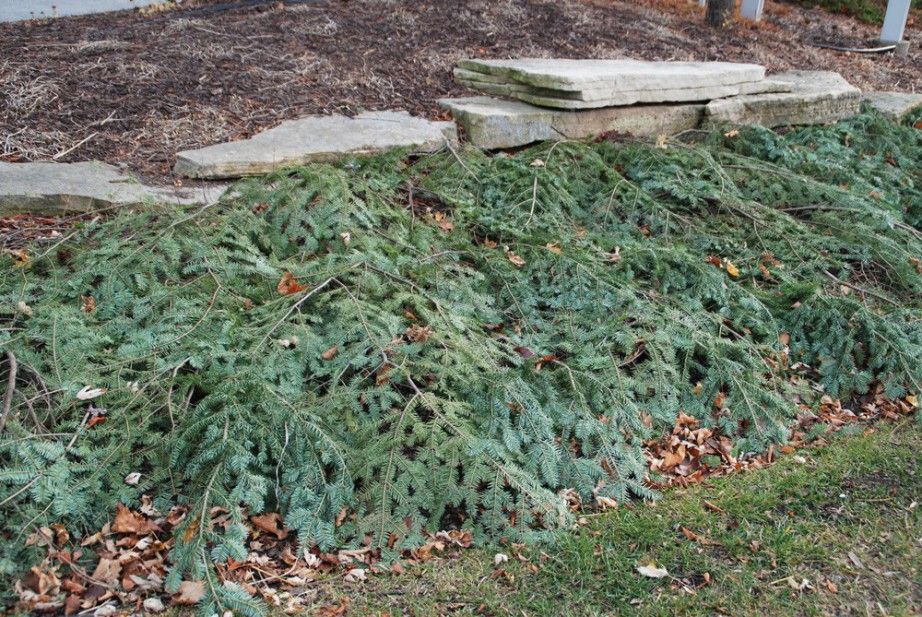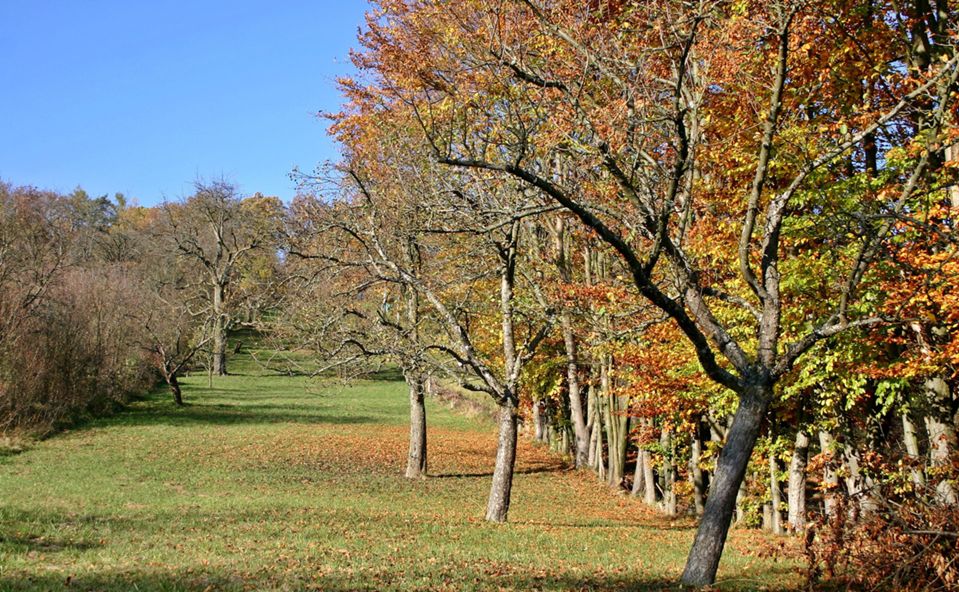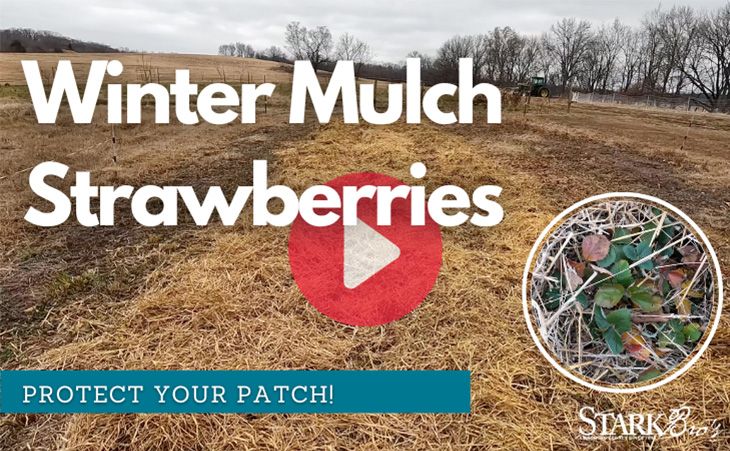Protecting Fruit Trees in Winter
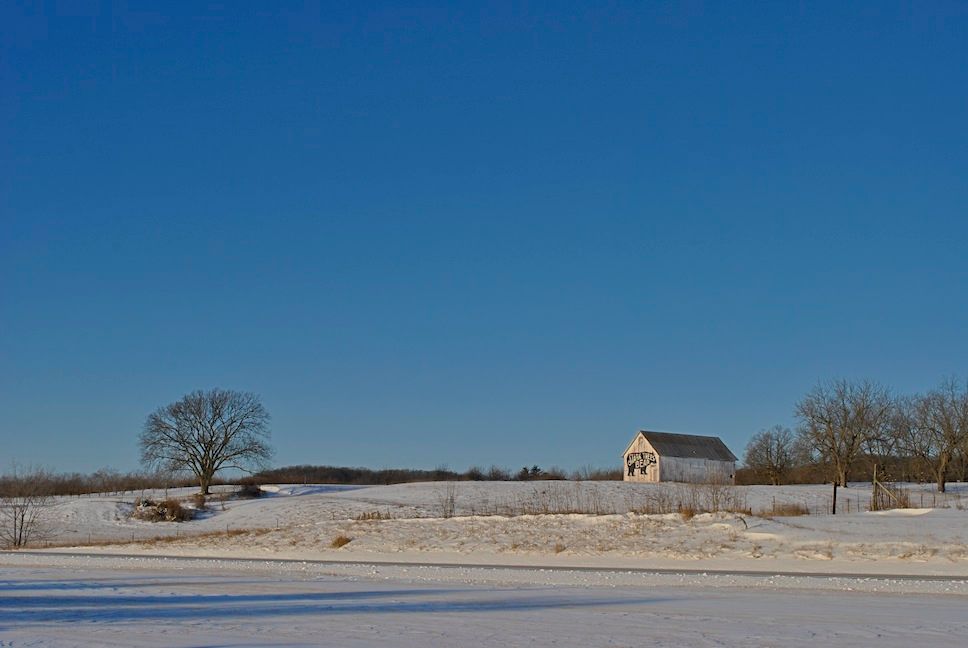
When it's been a cold winter the best thing you can do to prepare your fruit trees for winter (even a harsh winter) is to plan ahead.
There's an old saying, "an ounce of prevention is worth a pound of cure", and I consider these words to live by, especially in the garden. If it's an unusually cold winter, like it was in many places in 2014, things that you do for winter protection for fruit trees earlier in the fall (starting as early as October) will help protect them from cold winter temperatures.
Before Winter Sets In...
Plan ahead:
- Winterize Your Fruit Trees (Video)
- Protect your fruit tree's roots with mulch, which acts as an insulator
- Protect your young fruit tree's trunks from sun scald* with tree guards
*Sun scald is a common injury to tree trunks during the wintertime, especially on clear sunny days. The sun warms the tree's trunk during the day and then, at night, the trunk is at risk of cracking and splitting, since it doesn't have enough time to adjust to the drop in temperature. Once a tree is mature and its trunk diameter is too large for tree guards, you can achieve the same protection with a 50/50 diluted mixture of water and white latex paint applied to the trunk from below the lowest branch down.
While it is highly recommended to plan ahead for winter protection, it is also important to be proactive during the winter to ensure that your methods of protection remain effective. Here are some things to keep in mind:
What You Can Do Now
If winter is already upon your fruit trees, embrace insulation (the natural stuff, not the fiberglass stuff — although I've seen some people use this too!). Insulation is beneficial, especially to tree roots — protecting roots is most important! New branches can grow to replace damaged ones, but winter injury to roots is serious and can often be fatal to the whole tree. It's more likely to happen in young trees than older trees, but doesn't have to happen at all if you use insulation to your advantage.
Common Forms of Insulation:
- Mulch
- Straw
- Snow/ice (short-term)
Using mulch is a highly effective method of protecting fruit trees in winter — specifically their roots. Mulch, during the growing season, should not be more than a few inches thick, but in the winter, a little extra doesn't hurt*. Just be sure to rake away the excess mulch material once the temperatures warm up in the spring. It’s useful to note that not all mulch is created equal, and, for winter protection, there are some types of mulch that get the job done better than others.
Effective Types of Mulch for Winter Protection — these provide insulation and also break down, adding to the soil:
- Leaves/Compost, although these may compact and freeze, so use with caution
- Wood chips
- Pine needles
- Bark mulch
- Evergreen boughs (great way to recycle Christmas trees!)
- Straw
Ineffective Types of Mulch for Winter Protection — these don't provide much heat retention and don't add nutrients to the soil:
- Rocks
- Other inorganic material
*As a warning, the best mulches are also ideal hideouts for rodents and other critters that see your trees' bark and roots as a food source. To protect your trees from these pests, especially ones that may make a home in thick mulch, it is best to also lay down repellents like Deer & Rabbit Repellent granules.
Additional resources with useful information about mulch:
- Winter Mulching in Cold Climate Gardens from About.com
- Mulching Tree Fruit and Small Fruit from UMass
Straw is an excellent material for insulation. It is even used as "natural insulation" in buildings. Straw is sometimes confused with, or considered to be synonymous with, hay. Unlike hay, which draws and absorbs moisture, straw is more durable and has a tendency to stay dry. If you're going to temporarily cover your smaller trees' trunks with something like burlap, consider wrapping an insulating, moisture-repelling layer of straw inside.
Snow — yes, snow — actually works as an insulator! Temporarily. Like mulch, snow acts like a protective blanket; a barrier between the low temperatures of the air and the ground. The biggest benefit to snow is that it will eventually melt, providing moisture that your trees’ roots need to survive. Snow and other winter precipitation will provide moisture to the soil and roots during the winter so, unless your area is experiencing a winter drought, you shouldn't have to provide water during the winter for your dormant fruit trees.
Remember: it's easier for winter injury to occur with dry roots than it is with roots that are moist. This applies to fruit trees growing in containers as well, if they are in an area where the temperatures reach freezing or below freezing.
Additional resources about the benefits of snow in the landscape:
- The Benefits of Snow from UNL
- Snow Characteristics from National Snow & Ice Data Center
A consistently cold winter has one great perk: you won’t have to worry about your trees waking up early, only to be hit with damaging cold temperatures and frosts, like what can happen when temperatures fluctuate or when it’s been a warm winter. If you’ve already mulched and protected your trees in the fall, and are maintaining the protection this winter, then you are doing what you can to help them through it. Let’s keep a weather eye on our trees for the remainder of winter and look forward to spring!


